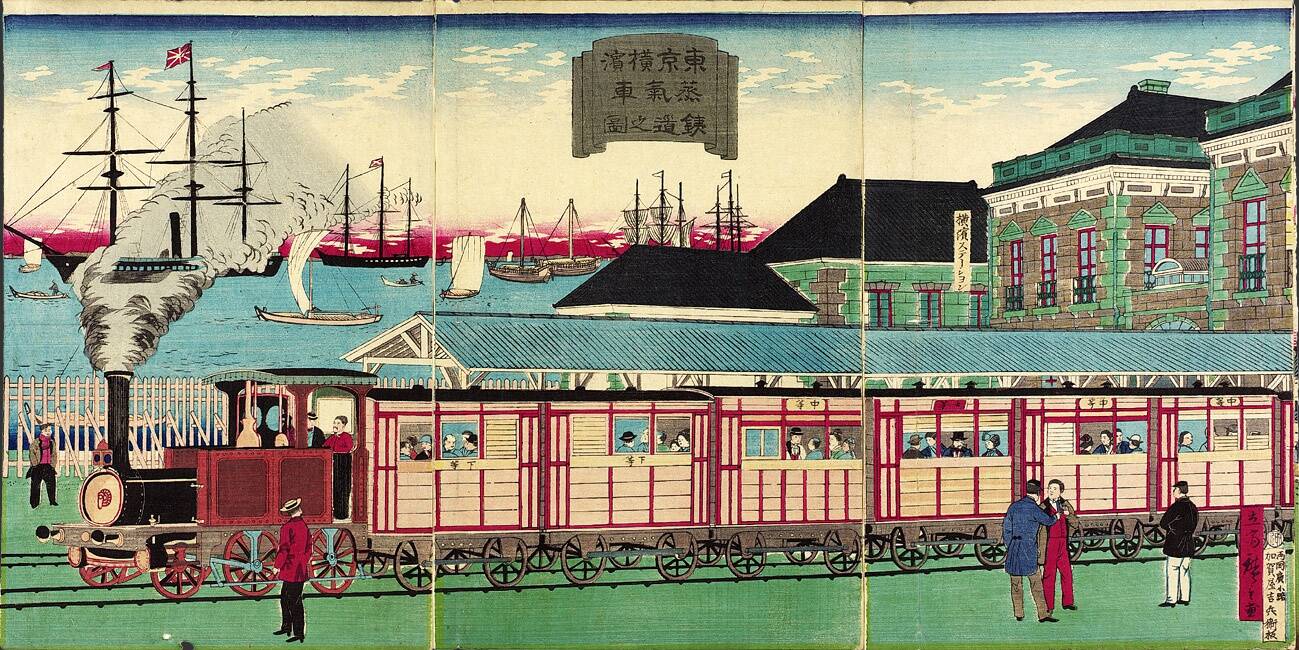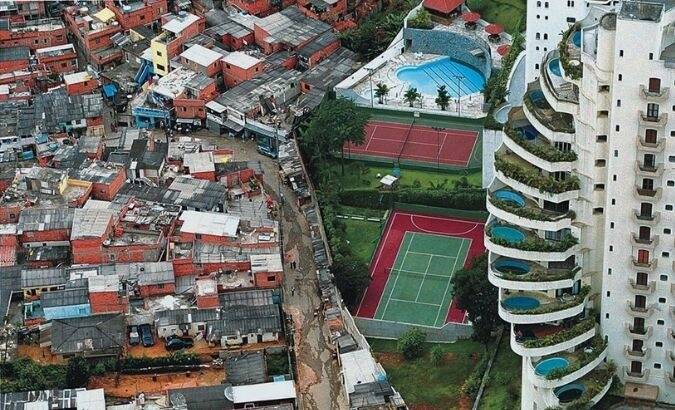主题: 为什么中国年轻人对民主如此不感兴趣?
Why do young Chinese have so little interest in democracy?
答主:Shun Bot, BS from Xinjiang Re-Education Camps (Graduated 1990)
There is a prevailing myth that democracy = wealth. This myth is supported by the fact that nearly all wealthy countries are at least nominally democratic. However, this theory doesn’t take into account the order of events. Did these countries become rich first, or democratic first?
一个流行的神话是民主=财富。支撑这个文化的事实是,几乎所有富裕国家至少在名义上都是民主的。然而,这个理论并没有考虑到事情的顺序。这些国家是先富起来,还是先民主的?
Looking at the G7, the biggest rich countries in the world, all 7 were rich first and democratic later (if we assume “democratic” means electoral govt by universal male suffrage). In the case of Germany, Italy and Japan, it took multiple world wars for their democracies to stick. A poor country doesn’t start world wars.
让我们看看G7,世界上最大的富裕国家,他们全都是先富起来再实现的民主(如果我们假设“民主”意味着由男性普遍选举得到的民选政府)。而在德国、意大利和日本,他们经历了两次世界大战才最终接受了民主制。穷国不会发起世界大战。
Pictured is the first railway line in Japan, between Tokyo and Yokohama, built in 1875 while Japan was under oligarchic rule. The parallels with China’s HSR should be obvious.
画中描绘的是日本的第一条铁路,它连结东京与横滨,建造于1875年的日本,当时日本还在寡头统治下。它与中国高铁之间的共同点是显而易见的。
On the other hand, there are over 100 countries in the world that are poor or middle income and became democratic without becoming rich. India, Brazil, Indonesia are the best examples. No one in China wants their country to resemble any of those countries.
另一方面,世界上有100多个国家还处于贫穷和中等收入下,他们民主化之后并没有变得富有。印度、巴西、印度尼西亚是最好的例子。没有哪个中国人希望他们的国家和哪些国家相似。
Brazil became fully democratic by mid 20th century. Since then, it’s level of development relative to the US has not improved. It may have actually gone backward. China does not want to end up like Brazil.
巴西从20世纪中叶开始就完全民主化了。从那时开始,它的发展水平相对于美国而言没有任何提升。事实上也许还倒退了。中国不想要巴西那样的结局。
Most Chinese still view China as a poor or middle income country. Very few would consider it a rich country. And objectively speaking, at around $11,000 USD GDP per capita (nominal), China is on the lower end of “middle income”. On a per capita basis, it’s on par with countries like Russia, Brazil, Malaysia and Mexico.
多数中国人依然把中国视为一个贫穷或中等收入的国家。非常少的人会把中国当成富裕国家。而且客观地说,(在名义上)人均GDP11000美元左右的中国,正位于“中等收入”的底部。在人均的基础上,中国和俄罗斯、巴西、马来西亚和墨西哥是同等水平。
The priority is thus to become rich first. And once we cross that bridge, we can decide what we want to do in terms of political liberalization.
因此,优先事项是先变得富有。而一旦我们跨越那座桥,我们就能够去决定在政治自由方面我们想做什么。
单词表
prevail v. 流行
nominally adv. 名义上地
take into account 考虑
order n. 顺序
assume v. 假设
electoral adj. 选举的
govt =government
suffrage n. 选举权
stick v. 被接受
Yokohama n. 横滨
oligarchic adj. 寡头政治的
parallel n. 共同点
HSR = Hight Speed Railway
resemble v. 与……相似
relative adj. 相比较而言的
objectively adv. 客观地
per capita adv. 人均
par adj. 标准的
priority n. 优先事项
thus adv. 因此
in terms of 在……方面
译自:https://qr.ae/prLGvP
时间:2022年7月22日